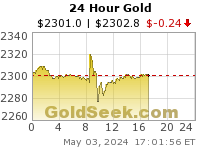During the past few years, The Federal Reserve has engaged in a "deliberate inflating policy."
This policy earned disfavor, both at home and abroad.
Robert Prechter said this in the July Elliott Wave Theorist:
"Foreign powers have been irate over the Fed's deliberate inflating policy. At its outset, QE2 generated 'a chorus of criticism' from China, Russia, Japan, Brazil and Germany. It prompted one of China's three credit rating services to lower its rating on U.S. debt from AA to A+, on the basis that QE2 is a scheme to defraud the Treasury's creditors.[Note: The credit rating service in China is not alone in downgrading U.S. debt. History was made August 5 when Standard & Poor's downgraded the United States' credit rating from AAA to AA+.]
(Inflation is a scheme to rob everyone.) Whether or not that rating decision was politically motivated, it represents foreign resistance to the Fed's machinations."
External resistance to the Fed's policies is one thing. But the machinations of America's central bank are also encountering resistance from within the Fed itself, albeit "behind closed doors." Let's return to the July Theorist:
It is not just outsiders who criticize the Fed's policies. Kansas City Federal Reserve Bank President Thomas Hoenig voted against all seven of the Fed's policy decisions in 2010. He disagreed with QE2 on the basis that it would generate inflation. He went public with his views at a Republican meeting in Washington on December 2. Richmond Fed President Jeffrey Lacker and Philadelphia Fed President Charles Plosser have also expressed concerns. Even Kevin Warsh, at that time a Fed governor-at-large who had never failed to support Bernanke, in a New York speech "warned of 'significant risks' associated with the program" (AP, 11/9) and expressed doubt that it would help the economy at all. His op-ed piece for The New York Times "expressed deep skepticism" of the plan. Richard Fisher, president of the Dallas Fed, in a San Antonio speech called QE2 the "wrong medicine" for the economy.The "wrong medicine" indeed! If anything, the economy seems as unhealthy now as it was before QE2.
In a June 30 CNBC interview, former Fed Chairman Alan Greenspan himself said, "There is no evidence that [the] huge inflow of money into the system basically worked."
 Prechter has extensively studied and written about the Fed for more than a decade. He has "pulled back the curtain" on the nation's "lender of last resort" and his findings are more relevant today than ever.
Prechter has extensively studied and written about the Fed for more than a decade. He has "pulled back the curtain" on the nation's "lender of last resort" and his findings are more relevant today than ever.Prechter's research is now available in a Free Report titled:
Understanding the Fed: How to Protect Yourself from the Common and Misleading Myths About the U.S. Federal Reserve
This special free report is now available for you to read by simply joining Club EWI. Membership is also free, and there are no obligations when you join. When you become a Club EWI member, you gain instant access to a wealth of EWI Educational Resources.
Get your Free Report about the U.S. Federal Reserve now by following this link for the quick and easy sign-up!


No comments:
Post a Comment